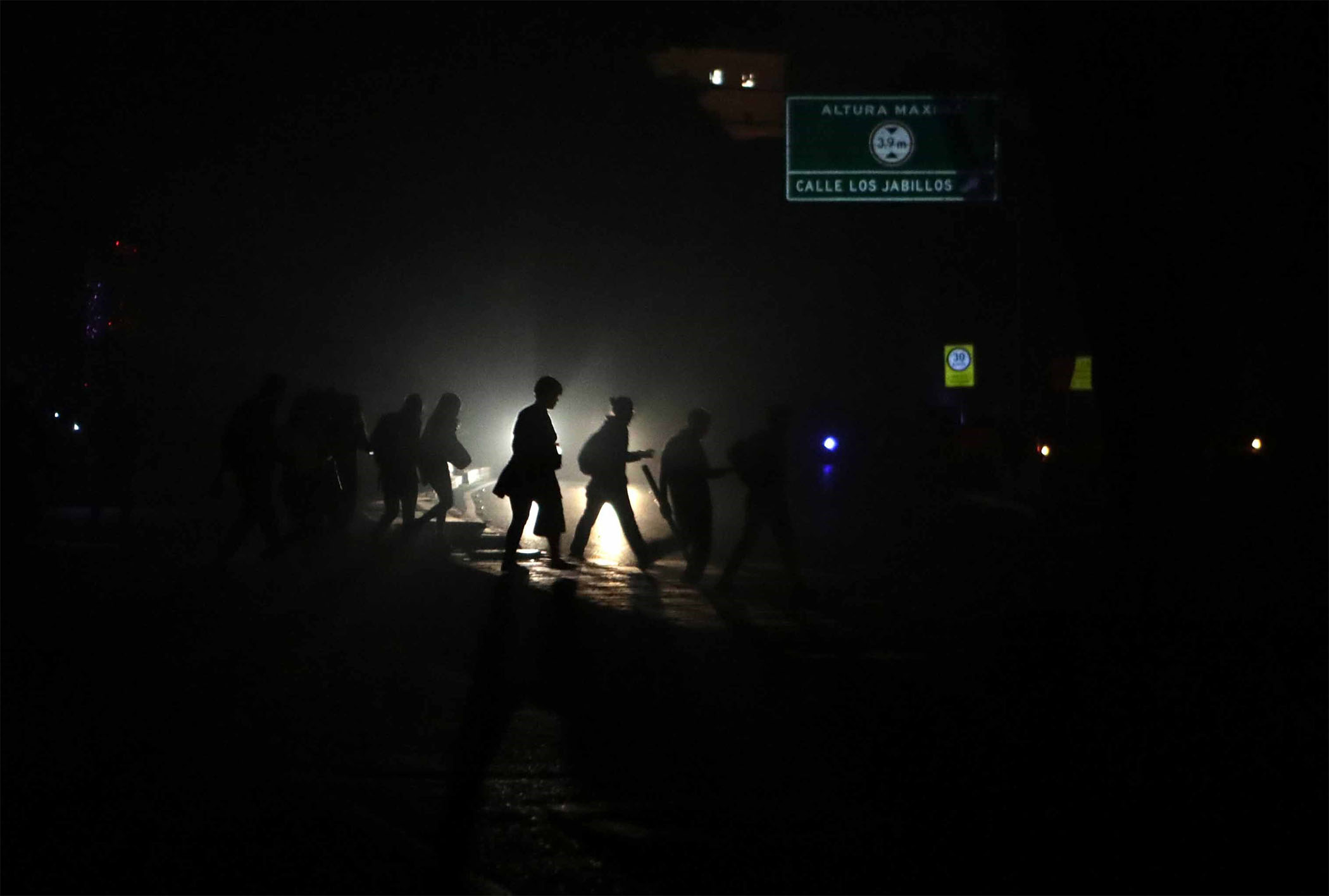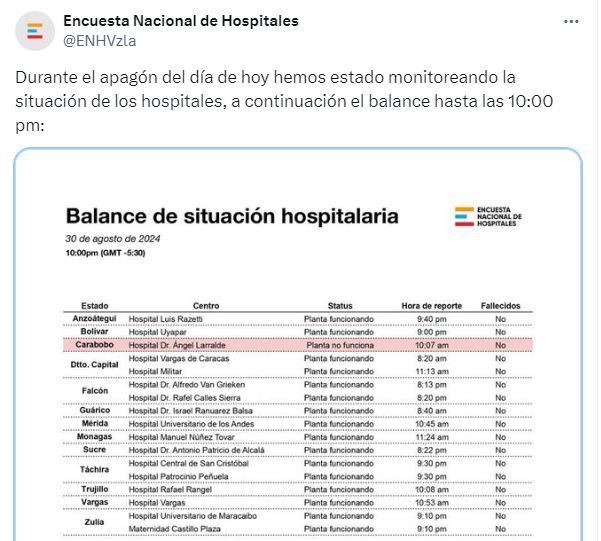National Hospital Survey ruled out deaths

The National Hospital Survey (ENH), the body in charge of monitoring the hospital situation in the country, detailed that no deaths were recorded during the massive blackout that the country experienced in more than 20 states, according to a balance obtained until 10:00 pm on Friday, August 30, which was posted on social network X.
The monitoring included 17 hospitals in 13 states of the country in which, according to the investigation of the ENH, Only one health center (in Carabobo) was left without a power plant during the blackout while the rest of the medical centers had their power generators working.

Photo: National Hospital Survey @enhvzla
The National Hospital Survey is part of the non-governmental organization (NGO) Doctors for Health, an organization that was founded in 2014 as an initiative of a group of health specialists who were dedicated to documenting the number of wounded people arriving at hospitals throughout the country due to the protests that Venezuela was experiencing that year. In addition, the organization is also dedicated to promoting the collection of supplies to support low-resource health centers in various states of Venezuela.
Blackout in Venezuela lasted more than 10 hours
The power failure that occurred during the early hours of August 30 affected the Venezuelan capital and more than 20 states, and, according to reports from various users on social networks, lasted for more than 10 hours. The government of Nicolás Maduro He attributed the national power failure to “sabotage” by the opposition.
Maduro added that “an account called Anonymous” had threatened a national blackout due to an alleged attack on the Guri dam system, the main electricity generating facility located in the state of Bolívar (south, bordering Brazil).
“We already know who operated an account called Anonymous, who hired it, who financed it. I won’t say any more. An Anonymous account at the service of the war of hate against Venezuela threatened on several occasions with a national blackout,” Maduro said during a broadcast on the state channel VTV.
However, various organizations have accused the Venezuelan government of not investing in maintenance and infrastructure to guarantee basic services such as electricity and water.
Independent journalism needs the support of its readers to continue and ensure that uncomfortable news that they don’t want you to read remains within your reach. Today, with your support, we will continue working hard for censorship-free journalism!
